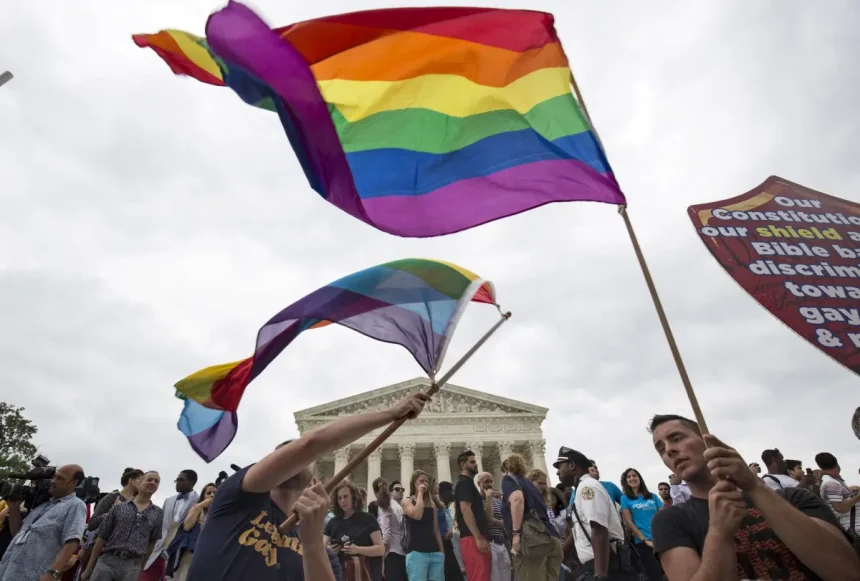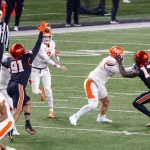Washington, D.C. — The U.S. Supreme Court on Monday rejected a last-ditch attempt to overturn Obergefell v. Hodges, the landmark 2015 decision that legalized same-sex marriage across the country.
The appeal came from Kim Davis, a former county clerk from Rowan County, Kentucky, who became a national figure a decade ago after refusing to issue marriage licenses to same-sex couples, citing her religious beliefs.
⚖️ What Happened
Without offering any comment, the Supreme Court declined to hear Davis’ appeal, effectively ending her years-long legal battle. Her petition had raised two key issues: whether she was protected by her First Amendment right to religious freedom, and whether the 2015 same-sex marriage ruling itself should be revisited.
The justices’ refusal to take up the case means the lower court’s ruling — which went against Davis — will stand.
🏛️ Why It Matters
The move comes amid growing concern among LGBTQ+ advocates that the court’s conservative majority might reconsider Obergefell, especially after the 2022 decision that overturned Roe v. Wade. That ruling had prompted Justice Clarence Thomas to write that the court should also review cases like Obergefell and others involving same-sex relationships.
However, none of the other conservative justices joined Thomas’ opinion. In fact, Justice Samuel Alito, who wrote the decision overturning Roe, recently signaled that he has no plans to challenge the same-sex marriage precedent.
📜 The Backstory
Kim Davis first made headlines in 2015, when she refused to issue marriage licenses to same-sex couples following the Obergefell ruling. Davis argued that her Christian faith prevented her from endorsing same-sex unions and said she should not be forced to sign licenses that conflicted with her beliefs.
Her actions led to several lawsuits, including one filed by David Moore and David Ermold, a couple denied a marriage license by her office. A court ordered Davis to issue the licenses — but she defied the order, was held in contempt, and spent six days in jail.
While Davis was behind bars, Moore and Ermold were finally able to marry.
💰 The Fallout
In response to the controversy, Kentucky lawmakers later changed the law, allowing marriage licenses to be issued without including the county clerk’s name.
But the legal battle didn’t end there. A jury later awarded $100,000 in damages to Moore and Ermold, and Davis was ordered to pay $260,000 in attorney’s fees.
Davis, represented by the conservative group Liberty Counsel, continued to fight the ruling, arguing that her religious rights were violated. After losing at the 6th U.S. Circuit Court of Appeals earlier this year, she appealed to the Supreme Court.
🔍 What’s Next
By rejecting Davis’ appeal, the Supreme Court has made it clear — at least for now — that same-sex marriage remains the law of the land.
Still, legal experts note that the court’s recent rulings have leaned in favor of expanding religious freedom, sometimes at odds with LGBTQ+ protections.
For supporters of marriage equality, the latest decision is a relief — but also a reminder that the fight for LGBTQ+ rights is far from over.









